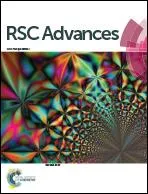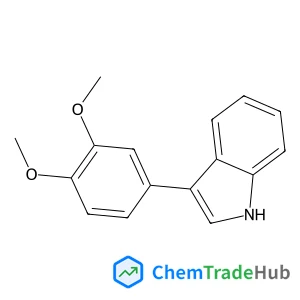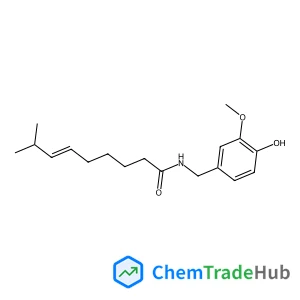Non-metal-mediated N-oxyl radical (TEMPO)-induced acceptorless dehydrogenation of N-heterocycles via electrocatalysis
文献信息
Huiqing Hou, Xinhua Ma, Yaling Ye, Mei Wu, Sunjie Shi, Wenhe Zheng, Mei Lin, Weiming Sun, Fang Ke
The development of protocols for direct catalytic acceptorless dehydrogenation of N-heterocycles with metal-free catalysts holds the key to difficulties in green and sustainable chemistry. Herein, an N-oxyl radical (TEMPO) acting as an oxidant in combination with electrochemistry is used as a synthesis system under neutral conditions to produce N-heterocycles such as benzimidazole and quinazolinone. The key feature of this protocol is the utilization of the TEMPO system as an inexpensive and easy to handle radical surrogate that can effectively promote the dehydrogenation reaction. Mechanistic studies also suggest that oxidative TEMPOs redox catalytic cycle participates in the dehydrogenation of 2,3-dihydro heteroarenes.
相关文献
IF 6.222
Back coverIF 6.222
Boronic acid liposomes for cellular delivery and content release driven by carbohydrate binding‡IF 6.222
Facile room-temperature growth of nanostructured CuBi2O4 for selective electrochemical reforming and photoelectrochemical hydrogen evolution reactionsIF 6.367
PEST (political, environmental, social & technical) analysis of the development of the waste-to-energy anaerobic digestion industry in China as a representative for developing countriesIF 6.367
Illuminating endosomal escape of polymorphic lipid nanoparticles that boost mRNA deliveryIF 6.843
In situ growth of all-inorganic perovskite nanocrystals on black phosphorus nanosheetsIF 6.222
Redox responsive Pluronic micelle mediated delivery of functional siRNA: a modular nano-assembly for targeted deliveryIF 6.843
An overview of latest advances in exploring bioactive peptide hydrogels for neural tissue engineeringIF 6.843
Synthesis and optical and electronic properties of one-dimensional sulfoxonium-based hybrid metal halide (CH3)3SOPbI3IF 6.222
来源期刊
RSC Advances

Chemistry fascinates us. This discipline is integral to life and impacts so many aspects of our world. The scope for RSC Advances is wide-ranging because we want to capture any research that can offer crucial insights and advance chemistry. RSC Advances papers should provide an insight that advances the chemistry field. Papers that contain little or no chemistry and are not considered to be of interest or relevance to the chemistry community are not within the scope of the journal. The criteria for publication are that the work must be high quality, well conducted and advance the development of the field. Articles submitted to the journal are evaluated by our international team of associate editors and reviewers for the overall quality and accuracy of the science presented. Download our full list of subject categories to see the range of topics we publish in RSC Advances. Please ensure you have considered the following points before submitting your manuscript. Does the work present an advance over the existing literature? Please supply a covering letter with your submission to demonstrate how the work is advancing the field over the existing literature Have you provided sufficient evidence/data to support your conclusions? Have you provided adequate characterisation data for your materials/compounds? (Please check the supporting information section to ensure that the necessary requirements have been met and copies of relevant spectra have been provided where necessary) Are the results discussed in the context of the literature? Are the references relevant and do they appropriately reflect the existing literature?
推荐供应商
 斯百全化学(上海)有限公司
斯百全化学(上海)有限公司 Berghof有限公司
Berghof有限公司 費雷爾國際
費雷爾國際 天津拓华泛恩化工有限公司
天津拓华泛恩化工有限公司 上海卡恩医药科技有限公司
上海卡恩医药科技有限公司 扬州长华生物科技有限公司
扬州长华生物科技有限公司 Variati & Co. S.p.a.
Variati & Co. S.p.a. NETZSCH-Feinmahltechnik GmbH
NETZSCH-Feinmahltechnik GmbH 铠硕化工销售有限公司
铠硕化工销售有限公司 成都迈德精化科技有限公司
成都迈德精化科技有限公司












![28443-57-4 - 4-[4-[(5S)-5-(氨基甲基)-2-氧代-3-恶唑烷基]苯基]-3-吗啉酮 28443-57-4 - 4-[4-[(5S)-5-(氨基甲基)-2-氧代-3-恶唑烷基]苯基]-3-吗啉酮](/structs/284/28443-57-4-e4c7.webp)

